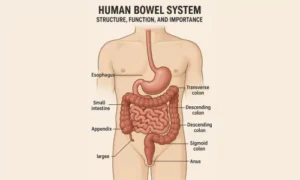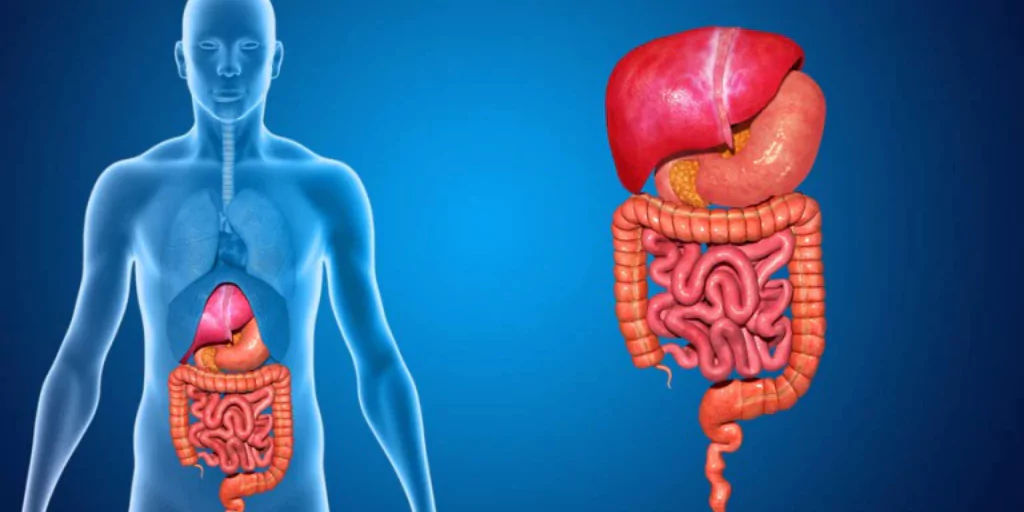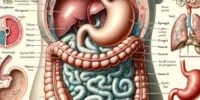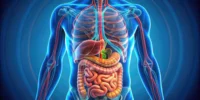The human body is a sophisticated mechanism with multiple systems that work together to keep us healthy and functional. One such critical system is the human bowel system, often known as the digestive tract or gut. It helps you digest meals, absorb nutrients, and eliminate waste. Understanding how the gastrointestinal system works can help us make better dietary, health, and lifestyle choices.
Structure of the Human Bowel System

The bowel system is part of the larger digestive system and is made up of two main parts:
1. Small Intestine
Length: Around 6 meters (20 feet)
Sections:
- Duodenum: Receives partially digested food from the stomach and starts chemical digestion.
- Jejunum: Responsible for the absorption of nutrients like sugars, amino acids, and fatty acids.
- Ileum: Absorbs remaining nutrients, including vitamin B12 and bile salts.
2. Large Intestine
Length: About 1.5 meters (5 feet)
Sections:
- Cecum: Connects the small intestine to the large intestine.
- Colon (Ascending, Transverse, Descending, Sigmoid): Absorbs water and salts from the remaining food matter.
- Rectum: Stores solid waste until it is ready to be excreted.
Anus: The final opening where waste exits the body.
Functions of the Bowel System

The bowel system is essential for several bodily functions:
- Digestion
Once food leaves the stomach, the small intestine continues the digestion process using enzymes and bile. - Nutrient Absorption
The small intestine absorbs essential nutrients from food into the bloodstream. - Water Reabsorption
The large intestine reabsorbs water and electrolytes from undigested food, forming solid stool. - Waste Elimination
Undigested food and waste products are formed into faeces and expelled through the rectum and anus.
Importance of a Healthy Bowel System

Maintaining a healthy bowel system is crucial for overall well-being. A well-functioning bowel:
- Prevents digestive problems like bloating, constipation, and diarrhoea.
- Ensures proper nutrient absorption, which impacts energy levels and immune function.
- Helps in detoxification, eliminating harmful waste from the body.
- Supports a balanced gut microbiome, important for mental and physical health.
Tips for Maintaining a Healthy Bowel
- Eat a high-fibre diet rich in fruits, vegetables, and whole grains.
- Stay hydrated with plenty of water.
- Exercise regularly to promote bowel movement.
- Avoid excessive intake of processed foods and red meats.
- Manage stress levels, as stress can impact bowel function.
Common Bowel Disorders

- Irritable Bowel Syndrome (IBS)
- Inflammatory Bowel Disease (IBD) – includes Crohn’s disease and ulcerative colitis
- Constipation and Diarrhoea
- Colorectal Cancer
If you experience frequent digestive issues, it’s important to consult a healthcare professional.
Conclusion
The human intestinal system is more than just a portion of the digestive tract; it is an important system that breaks down food, absorbs key nutrients, and eliminates waste. Taking care of your gut health through good diet, water, and lifestyle choices can improve your overall health and prevent a variety of digestive issues.






